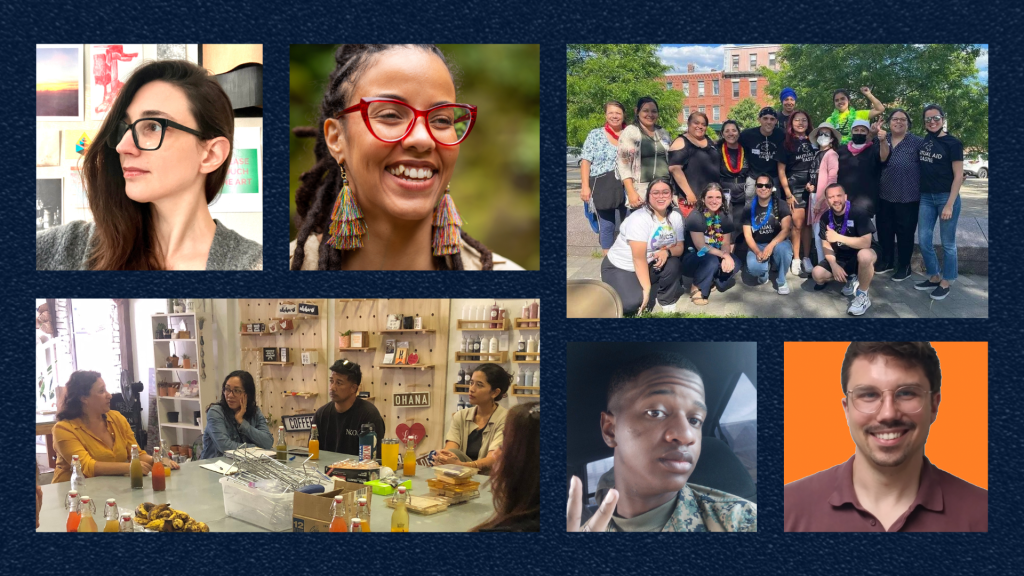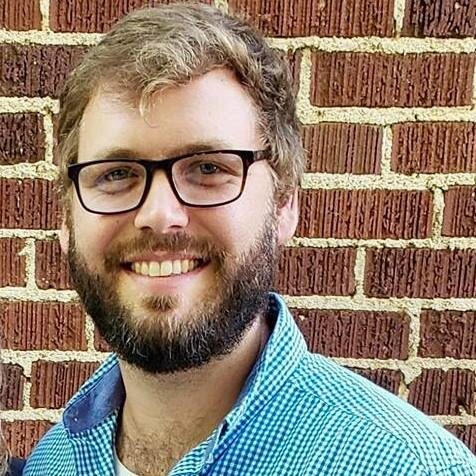In July, Shareable announced SolidarityWorks, a new virtual community lab for social change, and the Library of Things Co-Lab, our first “deep dive” co-lab.
Today, we are excited to introduce you to the 2024 Library of Things Fellows. The fellowship has been designed with and for communities that have been socially marginalized and most impacted by climate disasters, structural inequality, and class oppression. These fellows will participate in the Library of Things Co-Lab and receive stipends, seed funding, and one-on-one coaching to help them establish new Libraries of Things in high-potential communities. A special thanks to Library of Things Co-Lab partners Purpose Built Communities and the Center for Biological Diversity for their ongoing partnership and sponsorship of fellows in Houston, Jacksonville, and Orlando.
Each of these fellows is already doing amazing work to build a solidarity economy in their local community. We can’t wait to share more about their work and learning journey throughout 2024!
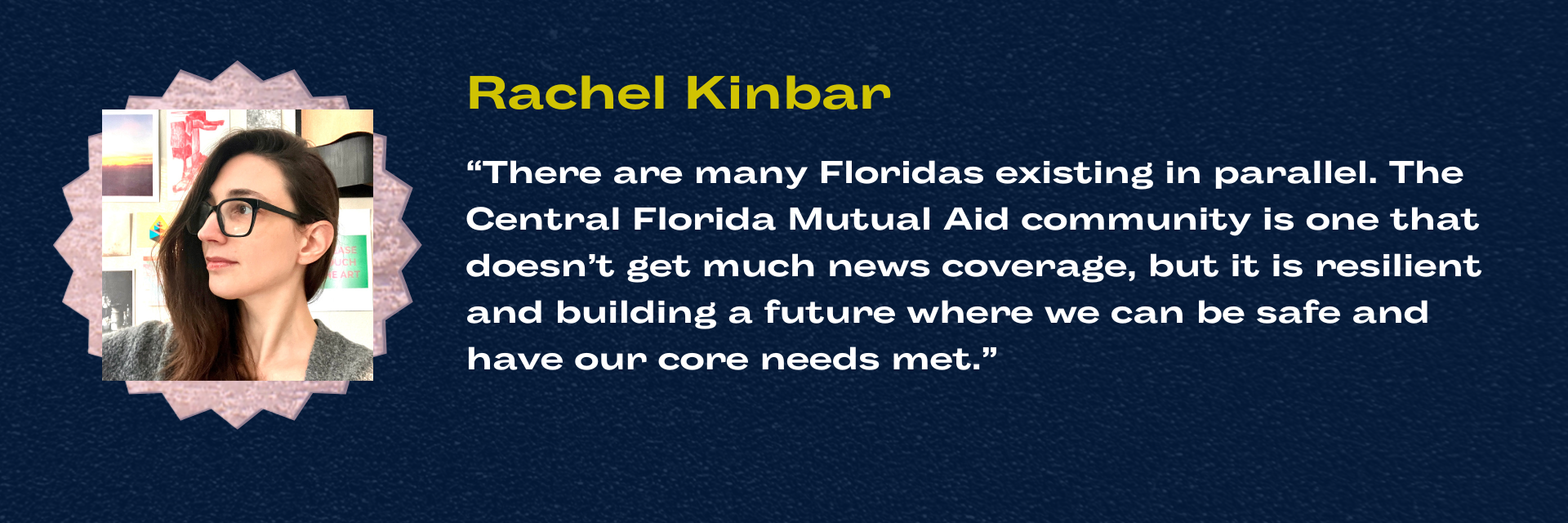
Rachel Jerusha Kinbar
Center for Biological Diversity
Greater Orlando, Florida
Tell us about the community where you are starting your Library of Things – geographically and demographically, as well as a bit about what your community looks and feels like.
I’m an organizer with Central Florida Mutual Aid. The community is dispersed across three counties (all of which are considered the greater Orlando area) and includes BIPOC, LGBTQIA+, disabled, neurodivergent, immigrant, and low-income folx.
We cover a large area, all of which is vulnerable to hurricanes and flooding, especially because most of our wetlands have been destroyed by developers. Climate change is very visible here, and it is very hot here most of the year.
The greater Orlando area has a lot of Caribbean and Latin American immigrants, but communities are also very segregated. It’s easy to be in one area and have no clue about another area nearby. These communities are very close-knit and have many decades of experience living in solidarity with one another and not relying on or interacting with the government. Many different Floridas exist in parallel. The Central Florida Mutual Aid community is one that doesn’t get much news coverage, but it is resilient and building a future where we can be safe and have our core needs met.
Tell us about the work your group is already doing or has done in your community.
One of our earliest projects was a Pet Food Pantry, where people could request items they needed. Because we cover a large area and many people do not have dependable transportation, we would deliver items. We would also table at pop-ups, where we’d bring what we had in stock and people could just come and take what they needed. No gatekeeping, no paperwork, no limitations, no need to provide proof.
When Hurricane Ian hit in September 2022, we shifted our attention to a neighborhood in West Orlando that was flooded really badly. Though many families had home insurance, the companies refused to cover most of the damage. CFLMA stepped in to muck and gut the houses. For months, we organized crews of volunteers to work on different projects for families in that neighborhood. We also advocated for them when they were hit with massive water and electric bills in spite of not even living in the houses, which were completely gutted. During this time, we also organized a food distribution project that involved collecting food donated by a meal service company and produce donated by a local farm.
We run a monthly Sustainability Gathering with one consistent partner and some alternating partners. The gathering takes different forms, but is mainly a garden brigade followed by a workshop. This event always has a good turnout and has been a beautiful way to build community.
This year we launched a Trans Safety Fund in response to anti-trans laws passed by the Florida legislature. The initial aim of the fund was to support folx needing to flee Florida for safety. We have recently expanded it to include those in our community seeking gender-affirming care. We raised $3,000 in the first round and just hosted another fundraiser in early December.
Why do you think a Library of Things is a good fit for your community? What do you think the impact will be?
During hurricane recovery last year, we built up a tool repository. While we haven’t publicly advertised it, we are able to respond to queries if we happen to have a tool that is needed. It has already been useful for our members, and knowing that we have those tools available in case of another hurricane gives us peace of mind that we can respond quickly. There is a massive income disparity in Orlando, and so many are struggling to cover their basic needs. Making more tools and other equipment available to community members who could not otherwise afford them will improve quality of life and deepen our sense of community.
What inspires you to make change in your community? What keeps you motivated?
I know that a better world is possible – for me, for my friends, for my community, and beyond. I’ve experienced poverty, being a single parent, living as an immigrant without speaking the local language, and being stuck in an awful situation for years. I’m neurodivergent and queer. The world we live in was not designed for me or people like me, so all I can really do is try to make it better for us. I think systems are neutral, but many cause harm by intent or consequence. I’m not a strong believer in reform, but believe that it is possible for people to build better systems, networks, communities for ourselves that meet the needs of the many instead of filling the pockets of the few.
Tell us an interesting random fact about you, your group, or your community that would not normally come up in an interview or profile.
When we first launched CFLMA, we covered four counties. The fourth county was included because of someone who showed up to the first meeting and was from that county. We had already written and voted on our charter before we realized that person had never been to another meeting! We finally removed that additional county recently because we literally have no members and don’t do any work there. Live and learn.
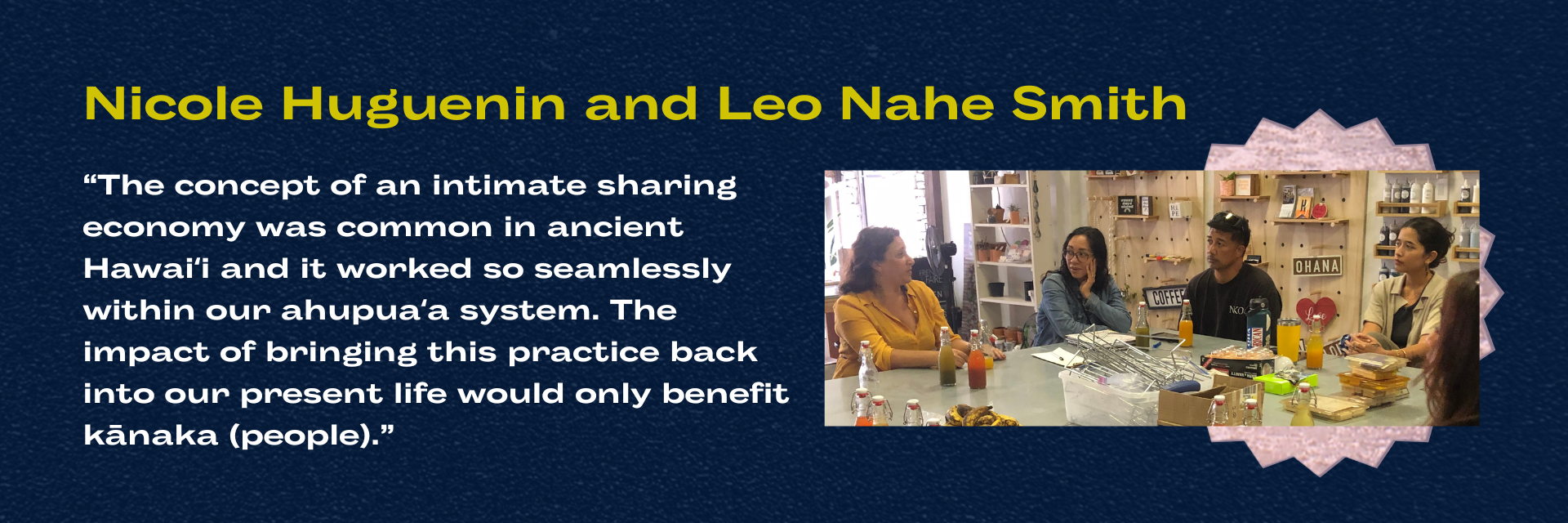
Nicole Huguenin & Leo Nahe Smith
Maui, Hawaiʻi
Tell us about the community where you are starting your Library of Things – geographically and demographically, as well as a bit about what your community looks and feels like.
Since we are on Native Hawaiian land, we want to be sure that our tool libraries and community fridge are located in kānaka ‘ōiwi (native hawaiian) communities and other kama‘āina (native born) communities. It is important to us that the people of this land are getting all their needs met via quality food, physical tools, etc. to ensure that they can continue living here. As of right now, our library of things will be located in the fire impacted zones, Lahaina and Kula, as well as Kihei and Central Maui.
Tell us about the work your group is already doing or has done in your community.
A hui (group) of small business owners, nonprofits, community organizers, and individuals have been meeting regularly to support each of our circular economy practices in our community as well as restore the ahupuaʻa system of ancient Hawaiʻi that abundantly managed ‘āina (land), resources, and cared for the people. We each have different projects we are working on, including a barter/trade app called Exchange Ave and starting two tool libraries and a community fridge in 3 of the 141 ahupua’a of Maui, one of which was burned down during the August 2023 wildfires.
Why do you think a Library of Things is a good fit for your community? What do you think the impact will be?
The cost of living on Maui is increasing each day, and Native Hawaiians are forcibly being pushed into diaspora while we wait for our local government to step up and help us. Mutual aid projects, like our tool libraries and community fridge, may not completely solve the deep-seeded issues, but they will provide the assistance that is needed right NOW. The concept of an intimate sharing economy was common in ancient Hawaiʻi, and it worked so seamlessly within our ahupuaʻa system. The impact of bringing this practice back into our present life would only benefit kānaka (people).
What inspires you to make change in your community? What keeps you motivated?
At this moment in time, the response to the wildfires and windstorms and caring for our two communities directly impacted, Kula and Lahaina, and the larger mokupuni (island) motivates the work we do by, for, and with each other.
Tell us an interesting random fact about you, your group, or your community that would not normally come up in an interview or profile.
Our work is heavily guided by kānaka ʻōiwi values and systems. We firmly believe in the following statement –
ʻAʻohe hana nui ke alu ʻia
No task is too big when done together by all.
‘Ōlelo No‘eau # 142, Mary Kawena Pukuʻi
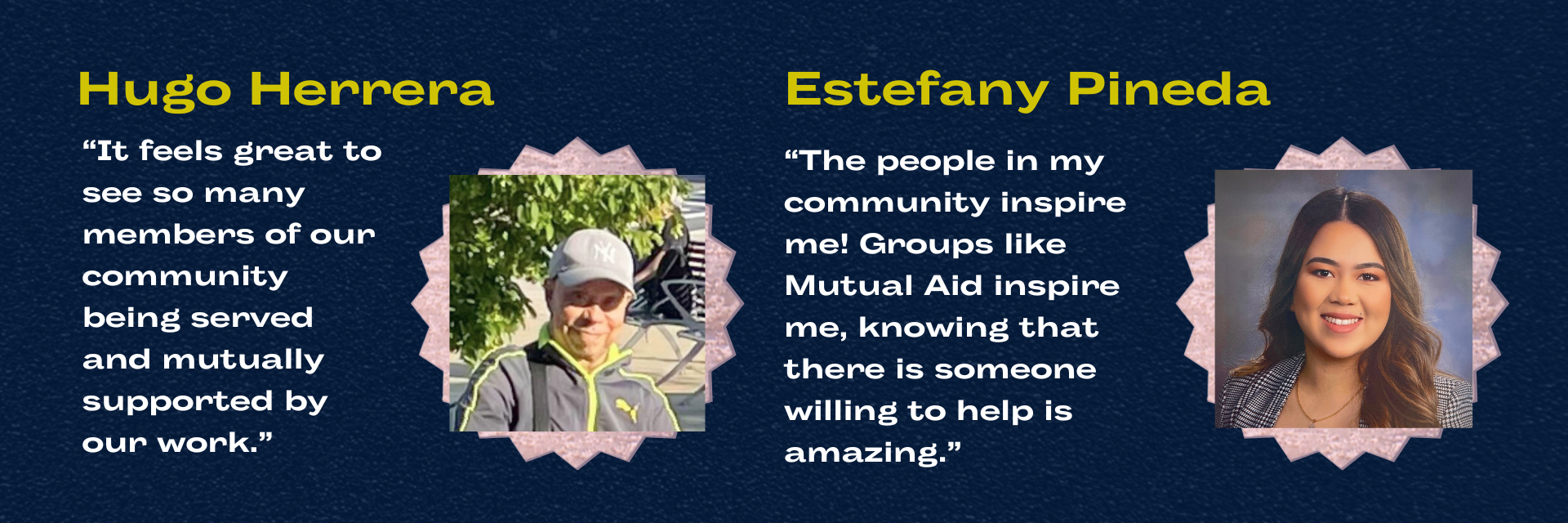
Hugo Herrara & Estefany Pineda
East Boston, MA
Tell us about the community where you are starting your Library of Things – geographically and demographically, as well as a bit about what your community looks and feels like.
Hugo: Our community is an immigrant, working-class community, and we face different kinds of marginalization that often results in neighbors living in impoverished conditions. There are folks for whom it is difficult to buy food or acquire a jacket or some pants.
Estefany: East Boston is small but mighty and diverse. You can find at least one person from each continent but it is mainly known for its Hispanic population. Walking through the streets feels like a community, you’ll see someone who knows someone who knows you. If you want to make a dish from home, you’ll definitely find the items you need at a bodega.
Tell us about the work your group is already doing or has done in your community.
Hugo: Mutual Aid Eastie is a network of connecting neighbors to neighbors and, through that means, seeking to know both our needs and our abundance, supporting each other through reciprocity. We have a Little Free Pantry that I check every day and post in our mutual aid group chats so neighbors can see what food and items are currently there and also to ask for supporting stocking it when need be.
Estefany: East Boston currently has a little library which is supported by Mutual Aid Eastie and the community. It has become a place where neighbors truly help each other. It is never empty! There is always books, food, shoes, and clothing. It has become a stamp in our community.
Why do you think a Library of Things is a good fit for your community? What do you think the impact will be?
Hugo: Our Little Free Pantry already helps support and provide relief to our neighbors facing food shortage or in need of clothes and other items. We hope to expand its impact and reach even more members of our community, potentially installing additional pantries or exploring a community fridge.
Estefany: A Library of Things will solidify and strengthen the Little Library in Eastie. We can have a bigger space physically to bring even more donations and help this community that continues to grow. I think that people will get even more excited to provide help to those who need it.
What inspires you to make change in your community? What keeps you motivated?
Hugo: It feels great to see so many members of our community being served and mutually supported by our work. I’m proud of what we have been doing, and motivated because our Little Free Pantry is running out of space!
Estefany: The people in my community inspire me! Groups like Mutual Aid Eastie inspire me, knowing that there is someone willing to help is amazing. I think my personal story and those who I’ve met along the way in my advocacy journey keep me motivated. There is so much to do, and though we can’t do it all, we can always continue planting seeds.
Tell us an interesting random fact about you, your group, or your community that would not normally come up in an interview or profile.
Estefany: I was part of a Nickelodeon special on Immigration!
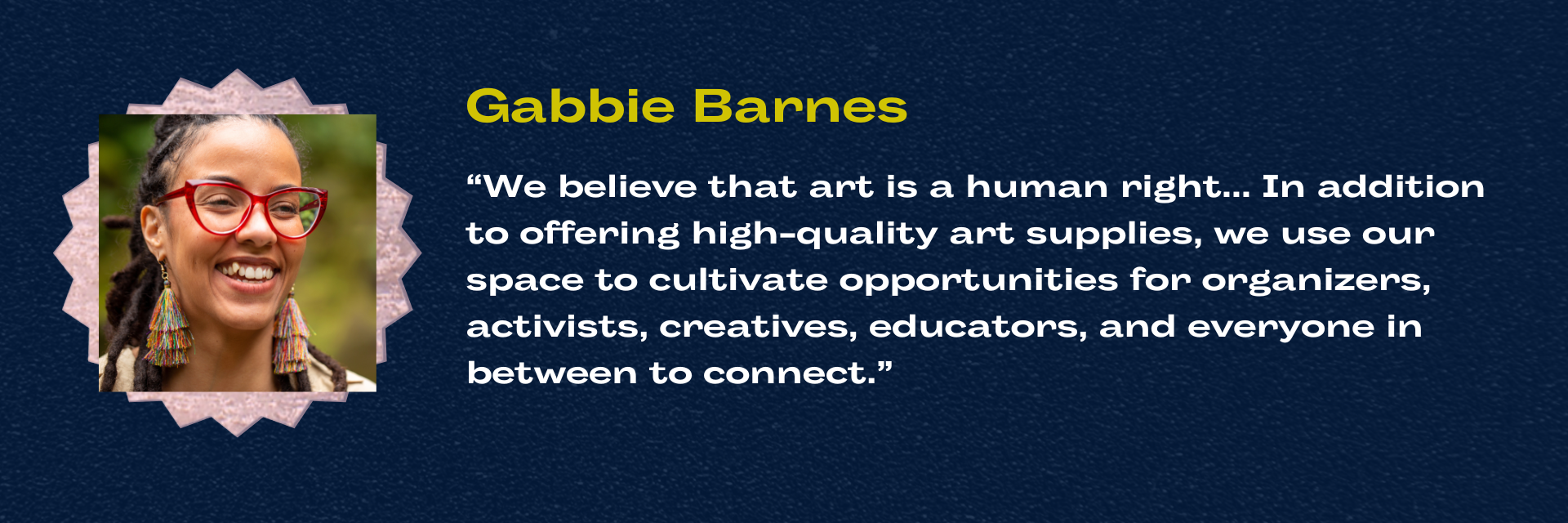
Gabbie Barnes
Hartford, CT
Tell us about the community where you are starting your Library of Things – geographically and demographically, as well as a bit about what your community looks and feels like.
Despite the misconception that everyone in CT is rich and white, Hartford is a predominantly black and brown city (93% of people in the 2022 census identified as either Black, Hispanic/Latino, or Two or more races). Being in New England, many residents have deep historical and generational ties to the area. However, the COVID-era migration from larger surrounding cities (primarily NY and Boston) has brought a lot of new residents, many that are young creatives.
Tell us about the work your group is already doing or has done in your community.
FREE HART Closet opened in October 2022. FREE HART was created to make art more accessible, specifically to adults. We believe that art is a human right, just as important to our survival as food, water, shelter, and safety. In addition to offering high quality art supplies, we use our space to cultivate opportunities for organizers, activists, creatives, educators, and everyone in between to connect. We are a project of Mutual Aid Hartford and a member of the Free Art Supply Network.
Why do you think a Library of Things is a good fit for your community? What do you think the impact will be?
Hartford is full of creatives with no shortage of inspiration and collaboration. Our challenge is that the rent is too damn high, wages are stagnant, food costs have increased exponentially, and it’s just generally really hard to try and make art with the little bit left in each paycheck. We’ve seen a lot of resource sharing among small groups as the main source of success and advancement. Right now, we give away the consumable art supplies that eat up an artist’s budget. Building a community-run Library of Things and being able to offer access to the huge investment pieces that really take art to the next level would be an incredible investment in Hartford artists.
What inspires you to make change in your community? What keeps you motivated?
By day, I’m a librarian (read: government employee). I went into librarianship because I believe deeply in democracy and the idea that the people hold the power. As such, I value community-controlled institutions because they ensure that the people most impacted by external influences are the ones making decisions. I also have to believe there is a future that operates with care, cooperation, accountability, and environmental stewardship at the center. By doing this work, I feel like I’m embodying those values.
Tell us an interesting random fact about you, your group, or your community that would not normally come up in an interview or profile.
I’ve worked in libraries since I was 19 and started collecting “things I find in library books” pretty soon after. I’ve been doing it at every library I’ve worked in for the last 17 years. I wish I had come up with a vision for what to do with the things when I started, but I was just fascinated and wanted to collect them. Now, I figure I’ll just keep going until I retire and then let the collection tell me how it wants to be represented.
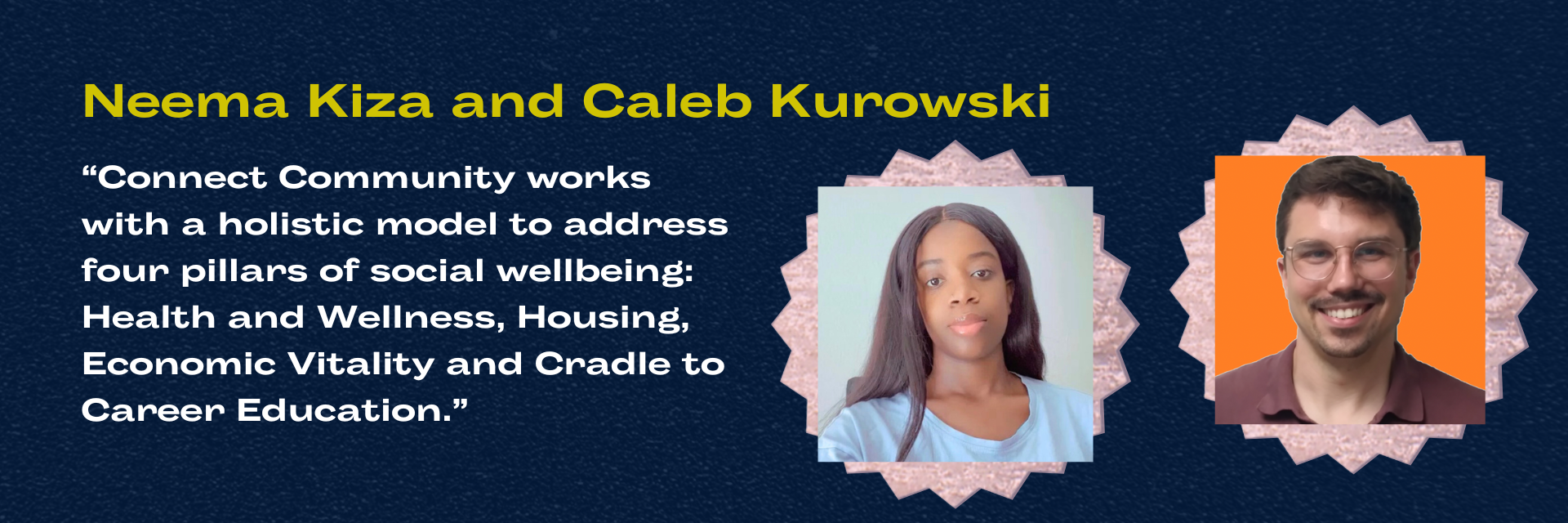
Neema Kiza & Caleb Kurowski
Connect Community
Gulfton neighborhood of Houston, Texas
Tell us about the community where you are starting your Library of Things – geographically and demographically, as well as a bit about what your community looks and feels like.
The Gulfton neighborhood, located in southwest Houston, is the Ellis Island of Houston. Around 91% of residents speak a language other than English at home, and the streets are lined with restaurants, groceries stores, and clothing outlets that reflect a diversity of backgrounds. The multitude of apartment complexes present in the neighborhood, where 93% live in rental housing, are full of life and provide space for social gatherings. A variety of organizations work in tandem to provide resources to the newcomer community. Unfortunately, the neighborhood has also faced a lack of development. Green spaces are few and far between, with only one major park that has not been renovated in decades; new housing has not been built since the 80s; and better jobs are needed to assist the 38% of residents who live below the poverty line. These are all problems that Connect Community is working with residents and other stakeholders to solve.
Tell us about the work your group is already doing or has done in your community.
Connect Community works with a holistic model to address four pillars of social wellbeing: Health and Wellness, Housing, Economic Vitality, and Cradle-to-Career Education. We have launched successful projects in all four of these impact areas. With our sister organization, Madres del Parque, we rallied to receive $700,000 in city funds for a master plan to renovate Gulfton’s one major park. We are building the first new housing in over forty years in a complex that will also hold a textile lab and entrepreneurship center to host job trainings and new local businesses. We hope to locate the Library of Things in or near this new complex, increasing community engagement in a place that is already the hub of the neighborhood.
Why do you think a Library of Things is a good fit for your community? What do you think the impact will be?
Newcomers face a variety of challenges when they arrive at their new home. From learning English to translating skills and certifications from abroad into viable careers in the United States, many have a long path before they can start earning enough to establish themselves. These economic hurdles mean that after basic needs are met – after food, clothing and house furnishings are purchased – little money is left each month for critical items to help integrate into their new community, like power tools, sporting equipment and more. A Library of Things is an amazing opportunity to provide the community with those resources, while providing an additional place where members of the community can get together and help each other by sharing skills and ideas.
What inspires you to make change in your community? What keeps you motivated?
Big changes in a community often happen slowly, and only become noticeable after a long time has passed and many individual actions, projects and initiatives have compounded to create a better environment. We’ve had our big moments, such as the installation of a crosswalk at a busy intersection or the upcoming grand opening of our new apartment complex and textile lab, and these are certainly inspiring. What also keeps us motivated, however, are the day-to-day interactions and small impacts we see in our community: the people we train in English, computer skills, sewing and professional development; the individuals we help with job placements who work hard to achieve financial independence; or the parents who feel more connected to their child’s school through our translation services. These small moments of impact make all the difference.
Tell us an interesting random fact about you, your group, or your community that would not normally come up in an interview or profile.
Our volunteers speak nine different languages among themselves, and many speak multiple languages!
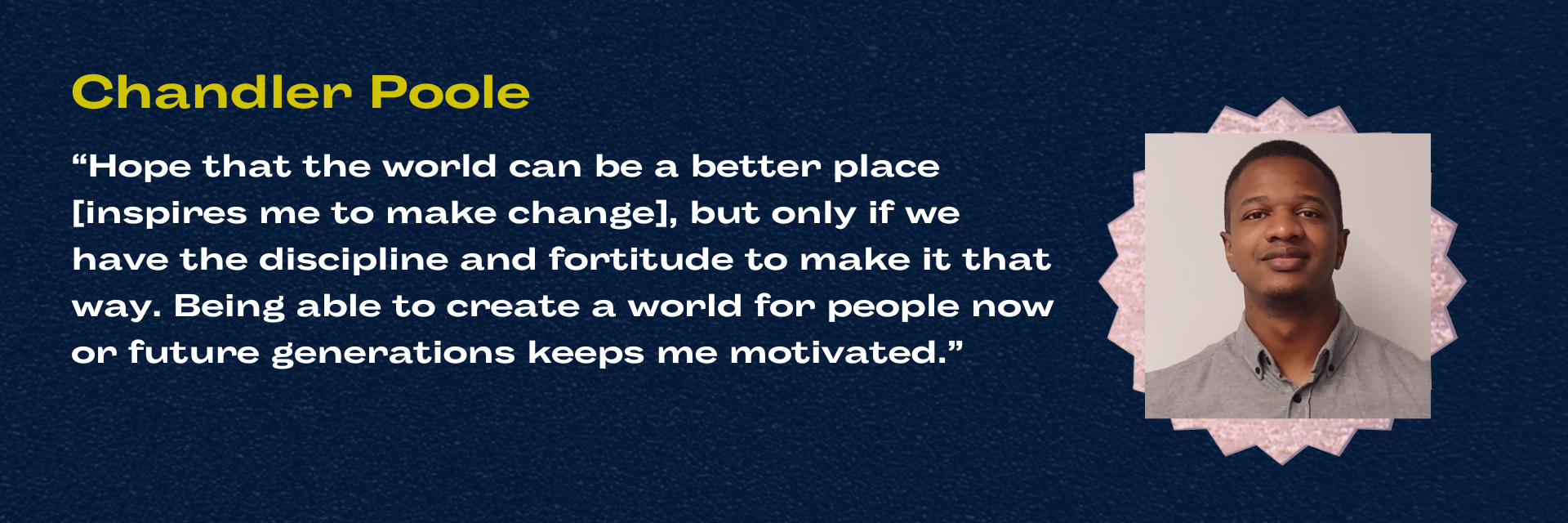
Chandler Poole
Center for Biological Diversity
University of North Florida at Jacksonville, FL
Tell us about the community where you are starting your Library of Things – geographically and demographically, as well as a bit about what your community looks and feels like.
I’m working to start a Library of Things near the University of North Florida in Jacksonville. The community is filled with a lot of young adult students around UNF campus.
Why do you think a Library of Things is a good fit for your community? What do you think the impact will be?
A Library of Things will really work around a college campus as it is a place for young adults new to the world to access items they normally could not afford. I think it will be great for inspiring young adults on the possibilities of a solidarity economy.
What inspires you to make change in your community? What keeps you motivated?
Hope that the world can be a better place, but only if we have the discipline and fortitude to make it that way. Being able to create a world for people now or future generations keeps me motivated.
Tell us an interesting random fact about you, your group, or your community that would not normally come up in an interview or profile.
The indigenous people who lived in North Florida were the Timucuan speaking people, and there is a state park nearby that one can visit to learn more!
